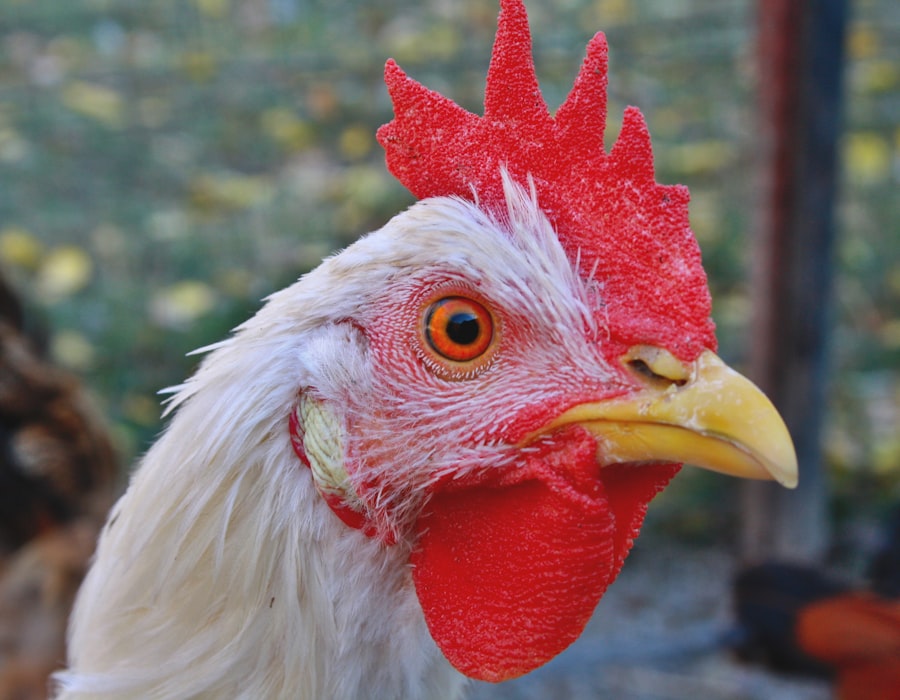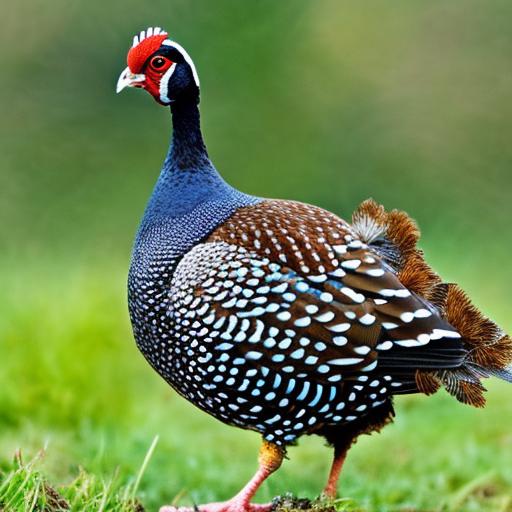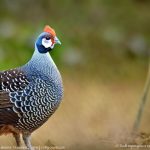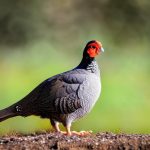Keeping guinea fowl in your yard can be a rewarding and beneficial experience. These unique birds are known for their pest control abilities, as they are excellent at keeping insect populations in check. In addition to their pest control capabilities, guinea fowl are also valued for their delicious meat and eggs. They are relatively low maintenance and can thrive in a variety of climates, making them a great addition to any backyard or small farm. Whether you are a seasoned poultry keeper or a beginner looking to add some feathered friends to your yard, guinea fowl are a great option to consider.
Guinea fowl come in a variety of breeds, each with its own unique characteristics and traits. From the popular Pearl and Lavender varieties to the lesser-known White and Royal Purple breeds, there is a guinea fowl breed to suit every preference. These birds are known for their striking plumage and distinctive calls, making them a visually appealing and interesting addition to any yard. In this article, we will explore the different aspects of keeping guinea fowl, from choosing the right breed to providing proper housing, nutrition, and care. Whether you are interested in raising guinea fowl for pest control, meat, eggs, or simply as unique and entertaining pets, this guide will provide you with the information you need to successfully raise and care for these fascinating birds.
Key Takeaways
- Guinea fowl are a great addition to your yard for pest control and entertainment.
- Consider the size, temperament, and egg-laying capabilities when choosing a breed of guinea fowl.
- Guinea fowl require a secure coop with roosting bars and nesting boxes for shelter and protection.
- Provide a balanced diet of commercial feed, grains, and access to insects and greens for optimal nutrition.
- Regular health checks, predator-proofing, and proper handling are essential for the well-being of guinea fowl.
Choosing the Right Breed of Guinea Fowl
When it comes to choosing the right breed of guinea fowl for your yard, there are several factors to consider. Different breeds have different characteristics and traits, so it’s important to choose a breed that aligns with your specific goals and preferences. Some breeds, such as the Pearl and Lavender varieties, are known for their striking plumage and are popular choices for ornamental purposes. Other breeds, such as the White and Royal Purple varieties, are valued for their meat and egg production. Additionally, some breeds may be better suited for certain climates or environments, so it’s important to consider your local conditions when choosing a breed.
In addition to considering the purpose for which you want to raise guinea fowl, it’s also important to consider the temperament and behavior of different breeds. Some breeds may be more docile and friendly, while others may be more independent and aloof. If you plan to interact with your guinea fowl regularly or have children who will be around them, choosing a breed with a friendly disposition may be important. On the other hand, if you are primarily interested in pest control or meat production, the temperament of the birds may be less of a concern. By taking the time to research and consider the different guinea fowl breeds available, you can choose the breed that best suits your needs and preferences.
Housing and Coop Requirements for Guinea Fowl
Proper housing and coop requirements are essential for keeping guinea fowl healthy and happy. Guinea fowl are hardy birds that can adapt to a variety of environments, but they still require adequate shelter and protection from the elements. When it comes to housing guinea fowl, there are several key factors to consider. First and foremost, guinea fowl need a secure coop or shelter to protect them from predators such as foxes, raccoons, and birds of prey. The coop should be well-ventilated and provide enough space for the birds to roost comfortably at night.
In addition to a secure coop, guinea fowl also require access to outdoor space where they can roam and forage. Guinea fowl are active birds that enjoy exploring their surroundings, so providing them with a spacious outdoor area is important for their physical and mental well-being. Ideally, the outdoor space should be enclosed with fencing to prevent the birds from wandering off or becoming prey to predators. Providing plenty of natural vegetation, such as grass and shrubs, in the outdoor area will also give the guinea fowl opportunities to forage for insects and other food sources. By providing a secure coop and ample outdoor space, you can create a safe and comfortable environment for your guinea fowl to thrive.
Feeding and Nutrition for Guinea Fowl
Feeding and nutrition are important aspects of caring for guinea fowl. These birds are omnivorous and have diverse dietary needs, so it’s important to provide them with a balanced diet to keep them healthy and thriving. In the wild, guinea fowl primarily feed on insects, seeds, fruits, and vegetation. When kept in captivity, it’s important to replicate this natural diet as closely as possible. A high-quality commercial poultry feed can serve as the foundation of a guinea fowl’s diet, providing essential nutrients such as protein, vitamins, and minerals.
In addition to commercial feed, guinea fowl should also have access to fresh water at all times. Water is essential for digestion, temperature regulation, and overall health, so it’s important to ensure that your guinea fowl have access to clean water throughout the day. In addition to commercial feed and water, guinea fowl can also benefit from supplemental treats such as fruits, vegetables, mealworms, and other protein-rich snacks. These treats can provide additional nutrients and enrichment for the birds, but should be offered in moderation to prevent overfeeding. By providing a balanced diet that meets their nutritional needs, you can ensure that your guinea fowl remain healthy and happy.
Health and Care of Guinea Fowl
Maintaining the health and well-being of your guinea fowl is essential for their long-term success. Like all poultry, guinea fowl are susceptible to certain health issues and diseases that can impact their overall health and productivity. Regular health checks and preventative measures can help keep your guinea fowl in good condition and minimize the risk of illness. It’s important to monitor your birds regularly for signs of illness or injury, such as changes in behavior, appetite, or appearance. If you notice any concerning symptoms, it’s important to seek veterinary care promptly to address any potential health issues.
In addition to regular health checks, providing proper care and maintenance for your guinea fowl is essential for their well-being. This includes keeping their living environment clean and sanitary, providing access to fresh water at all times, and ensuring that they have adequate shelter from the elements. Regular grooming and parasite control can also help keep your guinea fowl healthy and comfortable. This may include trimming their nails, checking for external parasites such as mites or lice, and providing dust baths or other opportunities for natural grooming behaviors. By staying proactive about your guinea fowl’s health and providing them with proper care and maintenance, you can help ensure that they lead long and healthy lives.
Benefits of Keeping Guinea Fowl in Your Yard

There are numerous benefits to keeping guinea fowl in your yard, making them a valuable addition to any small farm or backyard setting. One of the primary benefits of keeping guinea fowl is their natural pest control abilities. These birds are voracious insect eaters and can help keep populations of pests such as ticks, mosquitoes, and grasshoppers in check. By allowing guinea fowl to roam freely in your yard or garden, you can reduce the need for chemical pesticides while also promoting a healthier ecosystem.
In addition to their pest control abilities, guinea fowl are also valued for their delicious meat and eggs. The meat of guinea fowl is lean and flavorful, making it a popular choice for culinary purposes. Their eggs are also prized for their rich flavor and nutritional value. By raising guinea fowl in your yard, you can enjoy a sustainable source of high-quality meat and eggs that are free from hormones and antibiotics. Furthermore, guinea fowl are relatively low maintenance compared to other poultry species, making them an accessible option for beginners or those with limited time for animal care. Overall, keeping guinea fowl in your yard can provide numerous benefits including pest control, meat and egg production, and entertainment.
Tips for Successfully Raising Guinea Fowl
Successfully raising guinea fowl requires careful planning and attention to their specific needs. To ensure the health and well-being of your guinea fowl, it’s important to provide them with a suitable living environment that meets their housing, feeding, and care requirements. Additionally, here are some tips for successfully raising guinea fowl:
1. Choose the right breed: Consider your specific goals and preferences when choosing a breed of guinea fowl. Whether you are interested in pest control, meat production, or ornamental purposes, there is a breed that will suit your needs.
2. Provide adequate housing: Ensure that your guinea fowl have access to a secure coop or shelter that protects them from predators and provides ample space for roosting at night.
3. Offer a balanced diet: Provide your guinea fowl with a balanced diet that includes high-quality commercial feed, fresh water at all times, and supplemental treats in moderation.
4. Monitor their health: Regularly monitor your guinea fowl for signs of illness or injury, seek veterinary care promptly if needed, and provide regular grooming and parasite control.
5. Enjoy the benefits: Take advantage of the natural pest control abilities of guinea fowl while also enjoying their delicious meat and eggs as sustainable food sources.
By following these tips and providing proper care for your guinea fowl, you can successfully raise these unique birds in your yard while enjoying the numerous benefits they provide.
Guinea fowl are known for their pest control abilities, as they eat insects and ticks that can be harmful to humans and other animals. Additionally, their loud calls can act as a natural alarm system, alerting you to any potential threats or intruders on your property. With the right care and attention, guinea fowl can thrive in a yard environment, adding both practical and aesthetic value to your home. So, by following these tips and providing proper care for your guinea fowl, you can enjoy the benefits of their pest control and alarm capabilities while also adding a unique and interesting element to your yard.
If you’re considering keeping guinea fowl in your yard, it’s important to understand the basics of poultry care. One crucial aspect is ensuring the safety and comfort of your birds in a suitable coop. To learn more about creating an ideal living space for your guinea fowl, check out this informative article on choosing the right chicken coop. It provides valuable insights into coop selection and maintenance, which can be applied to housing guinea fowl as well.
FAQs
What are guinea fowl?
Guinea fowl are a type of bird that are native to Africa. They are known for their distinctive spotted feathers and loud, chattering calls.
What do guinea fowl eat?
Guinea fowl are omnivores and eat a variety of foods including insects, seeds, and small fruits. They are also known to forage for food in the yard.
Are guinea fowl good for pest control?
Yes, guinea fowl are excellent for pest control as they eat a wide variety of insects including ticks, grasshoppers, and even small rodents.
How much space do guinea fowl need?
Guinea fowl need a large amount of space to roam and forage. It is recommended to provide at least 250 square feet per bird in a yard setting.
Do guinea fowl need a coop?
Yes, guinea fowl need a secure coop to roost in at night to protect them from predators. The coop should be well-ventilated and have perches for the birds to roost on.
Are guinea fowl noisy?
Yes, guinea fowl are known for their loud calls and can be quite noisy, especially during mating season. It is important to consider the noise level when keeping guinea fowl in a yard setting.
Can guinea fowl be kept with other poultry?
Guinea fowl can be kept with other poultry such as chickens and ducks, but it is important to introduce them carefully and monitor their interactions to ensure they get along.
Meet Walter, the feathered-friend fanatic of Florida! Nestled in the sunshine state, Walter struts through life with his feathered companions, clucking his way to happiness. With a coop that’s fancier than a five-star hotel, he’s the Don Juan of the chicken world. When he’s not teaching his hens to do the cha-cha, you’ll find him in a heated debate with his prized rooster, Sir Clucks-a-Lot. Walter’s poultry passion is no yolk; he’s the sunny-side-up guy you never knew you needed in your flock of friends!







